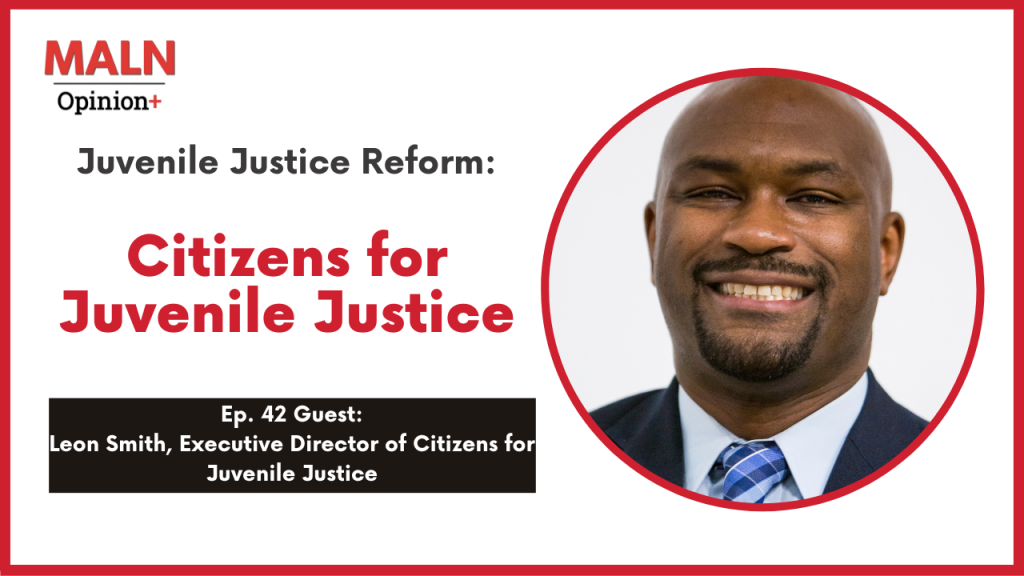Welcome to another episode of MA Latino News Opinion+ where we talk about major issues the Latinx and other underrepresented communities face in the state of Massachusetts.
This week we spoke with Executive Director of Citizens for Juvenile Justice Leon Smith on racial disparities within the state’s juvenile justice system and reform policies that aim to close these gaps.
Citizens for Juvenile Justice is the only independent, statewide nonprofit organization exclusively dedicated to juvenile justice reform and supporting other youth-serving systems across Massachusetts. Founded in 1994, the organization advocates through community engagement, conducting research, and educating the public on crucial youth justice issues.
“We really focus on…young people in the juvenile justice system [and] young people who are at risk of being pushed into pipelines like the school-to-prison pipeline or the child welfare-to-prison pipeline,” Smith told MA Latino News.
CfJJ looks to dismantle those systems while protecting the rights of young people who are currently in the juvenile justice system so they are treated fairly and equitably, Smith said.
In Massachusetts, Black youth were four times more likely and Latino youth were three times more likely than their white peers to experience a custodial arrest than a summons, according to a 2022 report by the Juvenile Justice Policy and Data Board.
“It’s one vision when someone walks into court with their parent, it’s another when they’re brought before the court already in handcuffs. Subconsciously, it definitely creates a different impression on the court, on the judge, which can impact the overall outcomes,” Smith explained. “…a summons is the preferred mode for effectively charging a young person and sending them to court.”
Research shows that when youth commit similar types of offenses, Black and Brown individuals are more likely to be arrested rather than summoned, resulting in harsher outcomes at the very beginning of the juvenile justice system.
“We know from research [that] when young people hit formal court processing it doesn’t have a deterrent effect, it actually makes it more likely that a young person will continue to move through the system,” Smith shared.
CfJJ advocates for expanding opportunities for expungements—so youth who have moved on from their mistakes can better clear their record—along with expanding Juvenile Justice Diversion.
“Diversion says ‘we are going to take this case, we are going to direct it to community-based solutions’—they can be restorative justice, they can be requirements to do community service, they can be treatment, counseling—different ways to address the needs of young people outside of a formal court system,” Smith said.
Formal court processes delay young people from receiving help, Smith emphasized. When a case is sent to diversion, that young person can get involved in services much sooner and the issue can be addressed more quickly.
“You can still hold a young person accountable but do so without giving them a court record or just sending them to the court process and ultimately that brings about better outcomes,” Smith added.
The nonprofit has also been focused on a Raise The Age campaign that looks to include 18 to 20-year-olds in the juvenile justice system, as other states have done.
According to data, young people who are committed in the juvenile justice system to the age of 21 show a 22 percent recidivism rate. When youth 18 to 20 are in the adult system, the recidivism rate is 76 percent.
“When young people hit the adult criminal justice system, they have the highest recidivism rate, which is a sign that the approach isn’t working,” Smith said. “Because if young people continue to loop in and out of the system and in trouble that is a product of the adult system not being geared to meet the needs of young people in that age frame.”
Another reform priority includes looking at policing practices. Law enforcement officers may use deceit when questioning a young person, such practices are linked to false confessions, Smith said.
Juvenile Justice advocates “want to make sure that young people who are being interrogated by police officers have an attorney present because young people are significantly more likely to falsely confess,” Smith explained.
Resources mentioned in this video:




